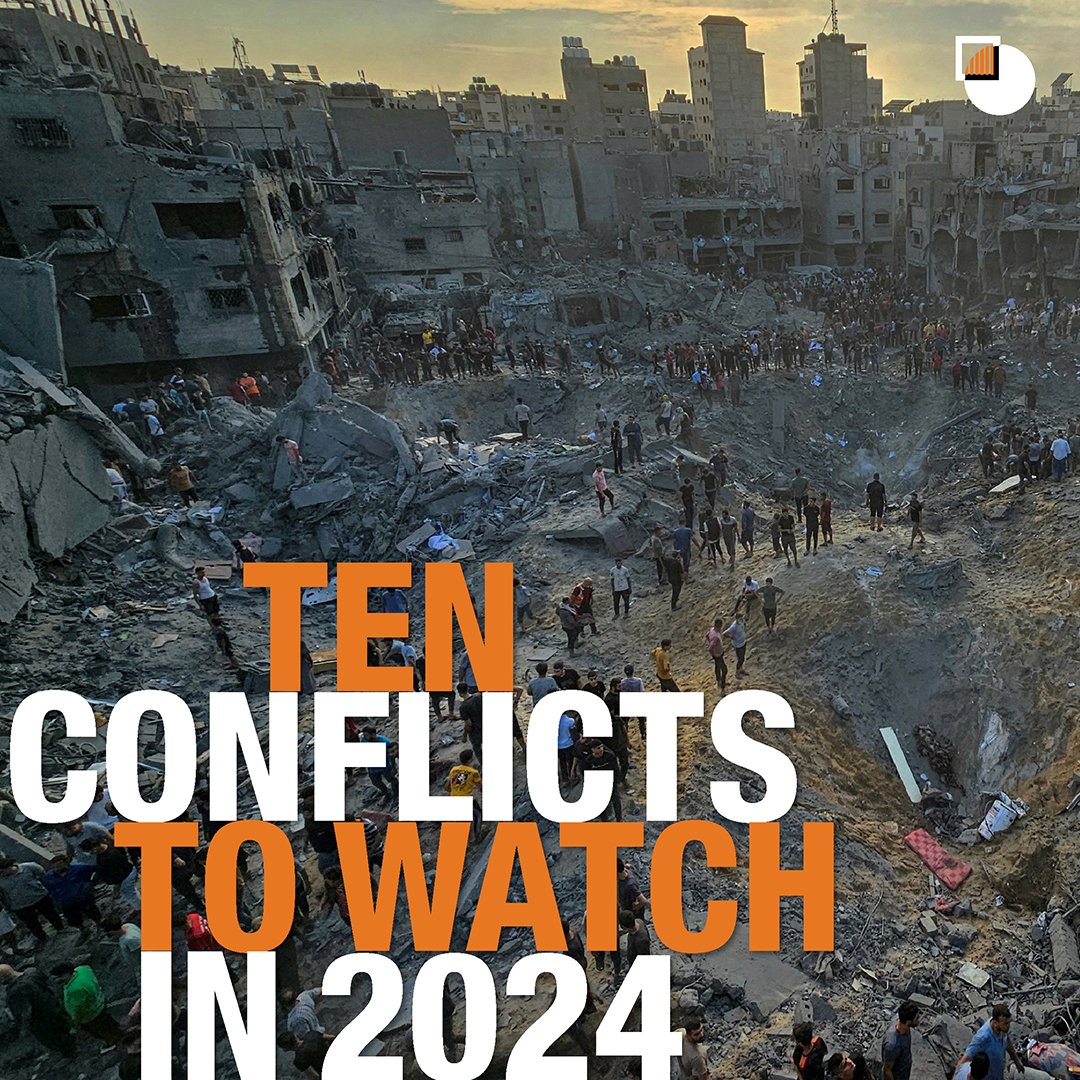
Jaclyn Johnson-Avalos
@jaclynjohnsonps
VAP of Political Science, University of Kentucky. Half vol the other half Cat. MMDD: geocoded dataset of military mutinies.
ID: 1872261342
http://jaclynjohnson.weebly.com 16-09-2013 16:46:04
243 Tweet
189 Followers
422 Following






Norms at Home, Norms Abroad: Security Force Assistance and Civil-Military Relations | Jaclyn Johnson-Avalos Christopher Faulkner Salah Ben Hammou Jonathan Powell mwi.westpoint.edu/norms-at-home-…



NEW COMMENTARY | Crisis Group’s 10 Conflicts to Watch in 2024 1️⃣ Gaza 2️⃣ Wider Middle East War 3️⃣ Sudan 4️⃣ Ukraine 5️⃣ Myanmar 6️⃣ Ethiopia 7️⃣ The Sahel 8️⃣ Haiti 9️⃣ Armenia-Azerbaijan 🔟 U.S.-China In collaboration w/ Foreign Policy 📌 Read more: crisisgroup.org/global/10-conf…


Informative animation by Steven Bernard using ACLED data to visualize the frequency, magnitude & spatial distribution of violent attacks across the Sahel for Aanu Adeoye's latest Big Read for the Financial Times on the ongoing jihadist insurgency: ft.com/content/f9c0ca…


Africa Faces the Unintended Consequences of Relying on Russian PMCs fpri.org/article/2024/0… via Foreign Policy Research Institute With Christopher Faulkner and Zach Streicher!

Interesting reporting from Stop Wagner Jaclyn Johnson-Avalos, Zach Streicher, and I talk a bit about the increasing likelihood of such altercations in our recent piece with Foreign Policy Research Institute: fpri.org/article/2024/0…


When the international order breaks down, it has disproportionately negative consequences for sub-Saharan Africa. My latest in Foreign Affairs on the U.S. response — successes, setbacks, and what more can be done. foreignaffairs.com/africa/africa-…


"The New York Times has written 54 articles about Congo in the past 12 months, including ones on the environment and the country’s recent election. It has, by contrast, run 2,969 articles on Ukraine." A must read via Jason Stearns foreignaffairs.com/democratic-rep… via Foreign Affairs


Jaclyn Johnson-Avalos, Zach Streicher, and I talked about this type of tension becoming a real possibility via Foreign Policy Research Institute. We thought (and think) it would stem from the armed forces angry at their mercenary counterparts but this highlights an additional angle fpri.org/article/2024/0…







